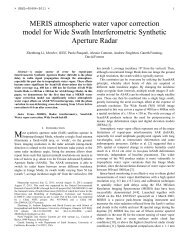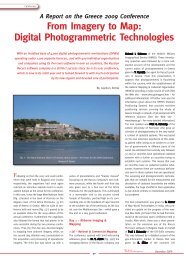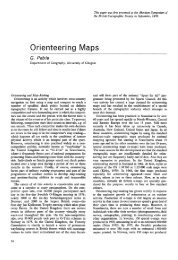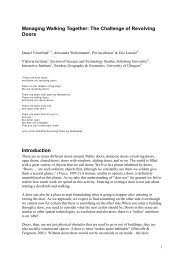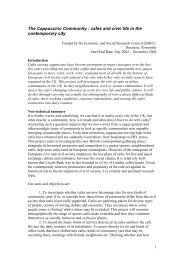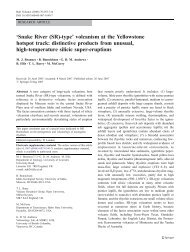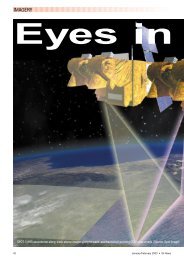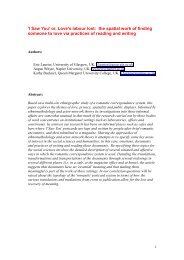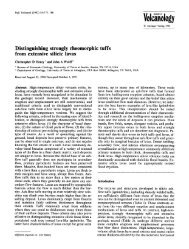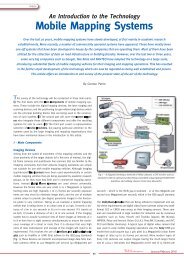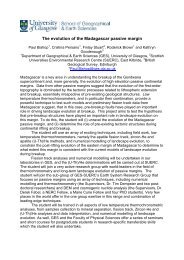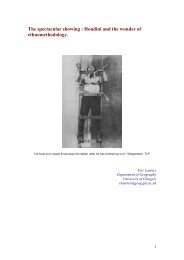Café Ethnography : the uses of tables and chairs
Café Ethnography : the uses of tables and chairs
Café Ethnography : the uses of tables and chairs
Create successful ePaper yourself
Turn your PDF publications into a flip-book with our unique Google optimized e-Paper software.
<strong>Café</strong> <strong>Ethnography</strong>:<br />
5). 14 A customer can see people sitting at a table as unacquainted by such discernible<br />
actions as: table sharers avoiding each o<strong>the</strong>r's gazes (in a similar fashion to <strong>the</strong> way<br />
one can discern who are strangers <strong>and</strong> friends in a lift/elevator), orienting to o<strong>the</strong>r<br />
members <strong>of</strong> <strong>the</strong>ir group through conversation & glancing, moving <strong>the</strong>ir <strong>chairs</strong> far<strong>the</strong>r<br />
away from each o<strong>the</strong>r or perhaps using reading-a-newspaper/magazine/book as a<br />
boundary marker if <strong>the</strong>y are sitting alone. Most <strong>of</strong> <strong>the</strong> customers at <strong>the</strong> Flaming Cup<br />
are 'regulars' <strong>and</strong> so have built-up plenty <strong>of</strong> <strong>the</strong>ir own ethnographic experience <strong>of</strong> how<br />
things are done at <strong>the</strong> café, how to avoid making mistakes <strong>the</strong>re <strong>and</strong> also in some<br />
respects how to avoid or encourage table-sharing.<br />
Table-sharing fur<strong>the</strong>r produces a feeling <strong>of</strong> informality as unacquainted customers are<br />
put into a situation where <strong>the</strong>re are plenty <strong>of</strong> opportunities to initiate a conversation. 15<br />
By sharing a table <strong>the</strong> customers can expect no easy exemption from 'small talk' from<br />
<strong>the</strong> o<strong>the</strong>r customers <strong>the</strong>y are sharing with (Cavan 1973). Initiating <strong>and</strong> continuing<br />
small talk requires active work from <strong>the</strong> parties to <strong>the</strong> talk, <strong>and</strong> declining to respond<br />
also requires work to ensure that <strong>the</strong> decliner is not open to scorn <strong>and</strong> negative moral<br />
evaluation.<br />
Choosing a table to share with a stranger does not really become an acceptable<br />
following <strong>of</strong> <strong>the</strong> 'rule' <strong>of</strong> <strong>the</strong> most efficient use <strong>of</strong> <strong>the</strong> <strong>tables</strong> until all <strong>the</strong> <strong>tables</strong> are full.<br />
So joining a stranger at a table at <strong>the</strong> Flaming Cup when it is quiet is likely to be<br />
treated as evidence <strong>of</strong> abnormality without some reason being given (<strong>and</strong> it would<br />
only be a weak reason to cite as common knowledge 'that people share <strong>tables</strong> at <strong>the</strong><br />
Flaming Cup'). During <strong>the</strong> testing <strong>of</strong> our research project's prototype electronic café<br />
table, for instance, <strong>the</strong> prototype table was shared by reference to <strong>the</strong> occasion <strong>of</strong><br />
which it was a part since it was no longer just one table equivalent to all <strong>the</strong> o<strong>the</strong>r<br />
<strong>tables</strong>. Customers were invited to share <strong>the</strong> table with Living Memory researchers so<br />
as to be shown how <strong>the</strong> prototype functioned <strong>and</strong> <strong>of</strong>fer <strong>the</strong>ir comments <strong>and</strong> evaluation<br />
<strong>of</strong> it. Even under such special circumstances for table-sharing plenty <strong>of</strong> customers<br />
declined <strong>the</strong> <strong>of</strong>fer to share <strong>the</strong> prototype table <strong>and</strong> sat at <strong>the</strong>ir chosen <strong>tables</strong> where <strong>the</strong>y<br />
did not have to engage in <strong>the</strong> Living Memory Project's activities. Being able to<br />
decline an <strong>of</strong>fer from a research team to participate in <strong>the</strong>ir activities when permission<br />
has been secured from <strong>the</strong> owners <strong>of</strong> <strong>the</strong> setting is characteristic <strong>of</strong> informal settings<br />
where customers have a different kind <strong>of</strong> discretion to that <strong>of</strong>, for instance, air traffic<br />
controllers involved in testing a new air traffic control system (Hughes et al. 1988).<br />
14 It is not simply that a person has to look at a scene <strong>and</strong> work out 'inferentially' what is occurring in<br />
that scene (i.e. 2 people sitting at a table who do not know each o<strong>the</strong>r), as (Sudnow 1972) demonstrates<br />
actors in that scene struggle to make <strong>the</strong>ir appearances intelligible to an observer who looks, even very<br />
briefly, at a scene.<br />
15 In contrast to brief encounters whilst paying <strong>the</strong> bill at <strong>the</strong> counter or selecting a magazine or<br />
newspaper from <strong>the</strong> café’s store <strong>of</strong> reading material.<br />
12



